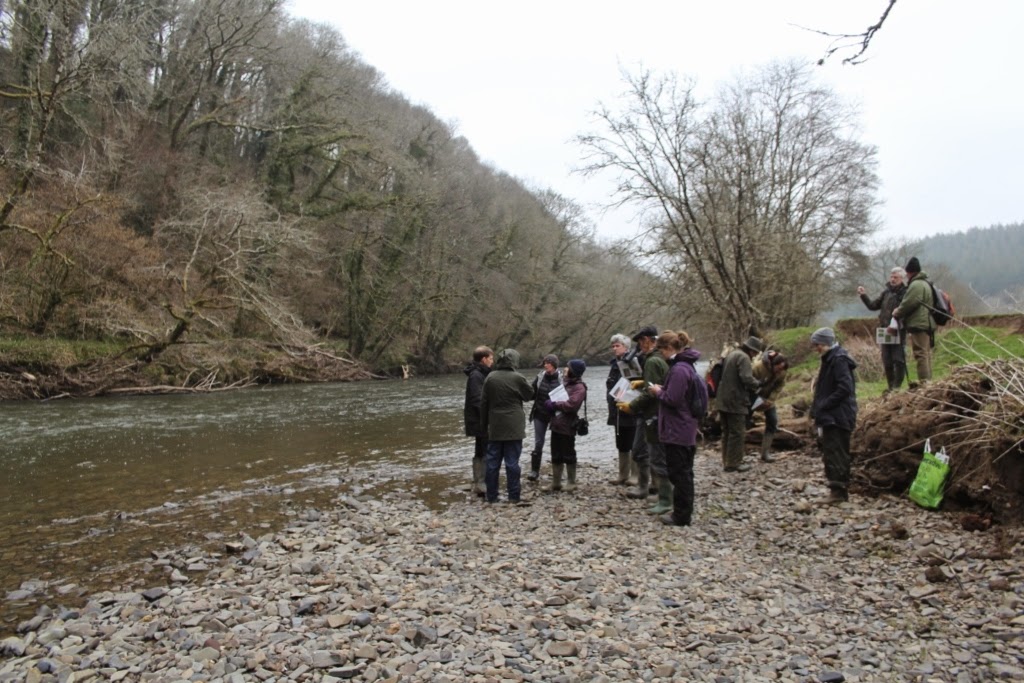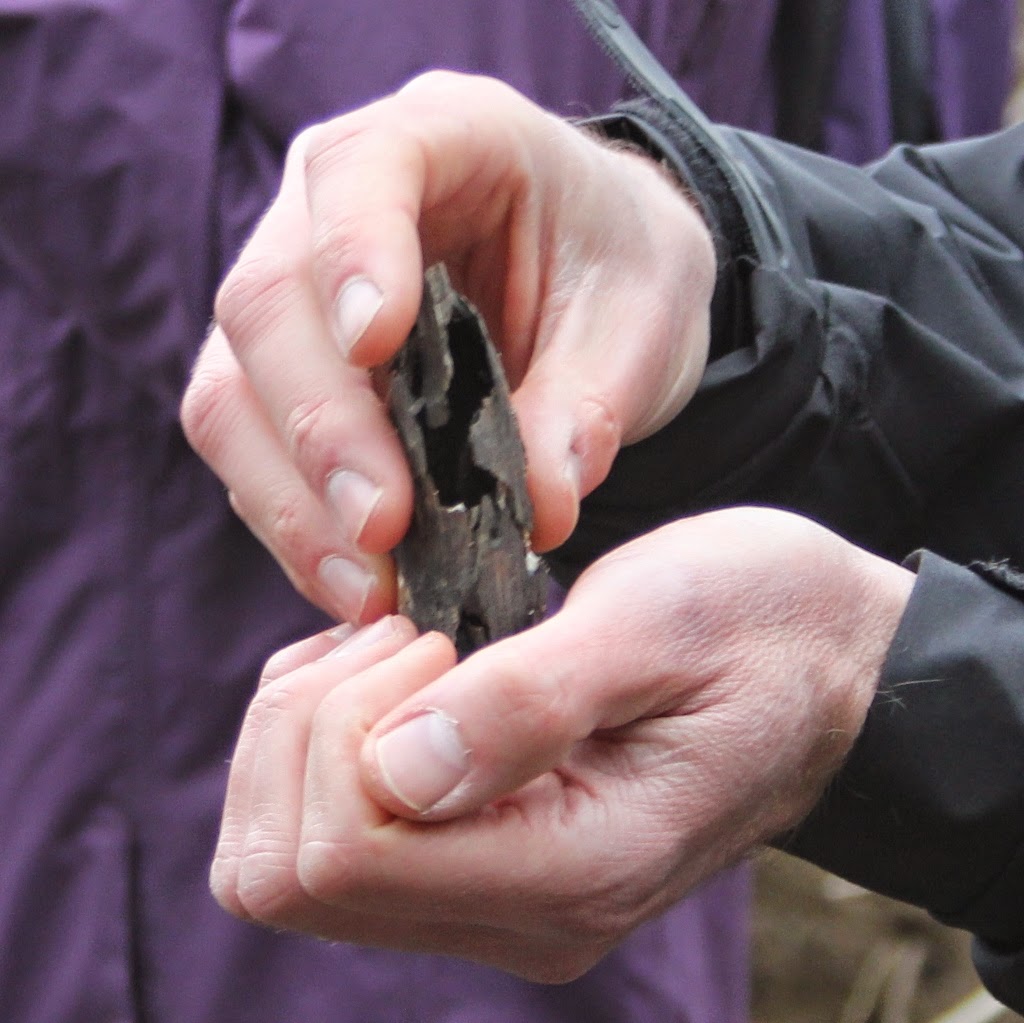.jpg) |
| Initial training on the Torridge |
Last Wednesday (11th March)
I undertook a day's training hosted by North Devon Nature Improvement
Area/Biosphere staff to learn how to survey for potential breeding
sites. We ten volunteers, from a variety of backgrounds, met with
five experts representing the Environment Agency, Devon Wildlife
Trust and North Devon Biosphere, on a secluded stretch of the River
Torridge.
.jpg) |
| Old, dead Freshwater Pearl Mussel |
During the morning we were shown how
to record along a stretch river noting various parameters – Habitat
type – which describes the state of the river channel; Bankside
features and Special feature points. This last covers things like
the presence of macrophyte beds, river width, water quality,
extraction, exposed bedrock, bars and evidence of key species –
Kingfisher, Otter and Dipper, and of course Mussels themselves all of
which was done from the bank accompanied by our tutors.
This was followed by us practising what
we had learned in groups of 2 or 3. We retraced the same stretch of
water making our own observations on the recording sheet. This
stretch does have an existing colony of Freshwater Pearl Mussels so
we were recording parameters that were relevant to the species'
existence. We all met up and compared, and where necessary, amended
our surveys.
After lunch, each group was allocated a
new stretch of river to survey in earnest. We did hear a Dipper and
saw Kingfishers as well as tracks and spraints of Otter. Most
excitingly, two keen-eyed surveyors found old, dead Mussels from the
strand line on a couple of the river bars. They are surprisingly
large.
We now await the call to spread out
further along the river and begin using our new survey skills for
real.
.jpg) |
| Individual teams surveying |
Freshwater Pearl Mussels live for
around 100 years and breed, in suitable habitats at 12-20 years of
age. The population in the UK is described as moribund with no
proven breeding having taken place in the last 40 years. Time is
running out so we are helping to prove that the survey methods can
correctly describe and identify the essential features of Mussel beds
so that measure to prevent silt accumulation, overshading, flooding
or damage which can prevent recruitment or breeding or kill them can
be developed. A 3-year project officer post is expected to move this
vital work forward before it is too late.
As well as helping in this critical
work it was an opportunity to walk along and enjoy a beautiful
stretch of one of Devon's enigmatic rivers.
No comments:
Post a Comment
Let me know what you do like and what you would like to see.